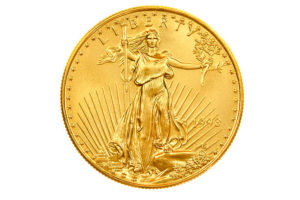 While most people missed it, there was a thriving gold economy in the early 2000s. It was centered around e-gold (a system for trading digital gold) and it involved billions of dollars per year in transactions. It was also a magnificent adventure.
While most people missed it, there was a thriving gold economy in the early 2000s. It was centered around e-gold (a system for trading digital gold) and it involved billions of dollars per year in transactions. It was also a magnificent adventure.
Below you’ll find a passage from the forward to Carl Mullan’s book on e-gold, called Better Money. (At Carl’s gracious request, I wrote that forward.) But before I do, I want everyone interested in silver and gold to know that their metals could be the doorway to excitement and prosperity… right away and not someday. It was done then and it could easily be done again.
Now, here’s that passage:
I am one of the lucky few who stumbled upon e-gold in the late 1990s, as it was bursting upon the world, empowering small commerce, allowing person-to-person international transactions and creating, for lack of a better description, a planet-wide party for the motivated but unprivileged.
The e-gold economy led me to bands of brothers – talented, fascinating and often wise bands of brothers – secretly meeting on tiny Croatian islands, in the back rooms of bars, in glitzy hotels and in dark corners of the Internet. e-gold led me to raw, potent and invigorating business deals and dealers. It brought me into a wide variety of international experiences, for both better and worse, that I wouldn’t have imagined otherwise.
The e-gold era was, to me, the life of high adventure, and I loved nearly every minute of it.
I am a thoroughly committed Bitcoin advocate: I want it to be used everywhere and all the time, starting yesterday. But that doesn’t mean I dislike gold and silver, or that I want them to do badly. On the contrary, silver and gold are decentralized money, which I love; my only complaint is that most of their advocates never actually use them.
Apocalypse Money Isn’t Good Enough
Let’s be honest and admit that a huge percentage of gold and silver advocates are frozen in place, waiting for an apocalypse of one sort or another. That’s when they plan on using their metals, and not before.
Waiting for an apocalypse, while it can be wonderfully dramatic, is a horrible strategy in the here and now. You wait and wait and wait and eventually die waiting for the apocalypse to come, which it never does. Beside, in a real apocalypse (depending upon which version you favor) gold will be some of the last money that would be used. We’d all use barter (or Bitcoin) or even outmoded forms of cash before purchasing a bag of groceries with a 1 ounce gold coin.
The fact is that gold and silver can be exciting. All you have to do is use them. (As far as I know this is quite legal, though you can check with whatever professionals you prefer.)
Please understand this:
Gold and silver remain neutered until you use them in daily commerce.
The excitement and the price increases come when we start using our metals at the corner store, to buy a used car, and so on. For one thing, everyday use would almost instantly generate a commercial infrastructure. Local exchangers, assayers, and other businesses would spring into existence to service it all. The exchange of millions of ounces on a daily basis requires support, and it would spell opportunity for anyone motivated and reliable.
How can I know the support system would spring into existence? Because that’s precisely what happened with e-gold, just two decades ago. Self-appointed and self-motivated dealers jumped up and began exchanging e-gold for anyone who could pay. They developed their own pricing mechanisms and all that went along with them. It was unfettered commerce… profitable commerce… and I’m telling you, it was a gas.
The Secret Appeal of The Apocalypse
Please understand that I’m not trying to condemn anyone by saying this. I like gold and silver advocates: In my experience they are earnest, thoughtful and reliable people. They’re the kind of people I’m pleased to have as friends and neighbors. Nonetheless, I think this needs to be pointed out:
One of the great appeals of an apocalypse is that it takes you directly to clarity and freedom, without having to take any risks along the way.
Using a pair of Sermon on The Mount metaphors that I think are quite fitting, buying into the apocalypse drama gets you the kingdom of heaven without having to suffer for righteousness’ sake.
Progress requires difficult decisions, it requires acting in the face of established authority and expectations, and it requires endurance. But it’s deeply satisfying and rewarding when it works, and even when it doesn’t. People shouldn’t go through life without this, and if you’re a gold and silver advocate, it’s sitting right at your feet.
**
